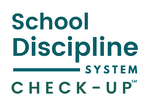Evidence-Informed
Your expertiseOur expertiseScientific Research |
We value science, data, and scholarly research as well as the inherent wisdom and knowledge of each of us. We use an evidence-based decision making model in all of our work. Evidence-based decision making blends client experience, professional expertise, and the best available research. Combined, these three areas allow us collaboratively to make sense of problems, utilize the best available research evidence, tailor interventions, and evaluate implementation and outcomes.
|
Anti-oppressive
InclusiveCulturally-ResponsiveEquity-focused |
We actively reflect on the ways our own biases, privileges, and cultural worldviews inform our work with families and communities. We believe that interpersonal and systemic oppression interact to impact the health and wellbeing of children of color, children who identify as LGBTQAI+, and children with disAbilities (among others). When we work with and participate in systems that have historically disadvantaged certain groups of people, we play a role in the continued oppression of marginalized people. We believe we must continuously engage in our own anti-oppressive work.
|
Strengths-based
RelationshipsResourcesResilience |
We believe that sustainable change occurs when the people within and around our systems are honored and recognized for the wisdom, expertise, and unbelievable resilience they bring to their work. Whether working with teachers, children, families, or organizations, we believe in leveraging and building upon existing strengths in our homes, schools, and communities to promote youth mental health.
|
Resilience-focused
Trauma-InformedBrain scienceSelf-care |
We believe that trauma impacts the brain, body, health, learning, and behaviors. We believe trauma occurs at an interpersonal and structural level. We also believe that the child and adolescent brain is malleable; and that individuals and communities can rewire trauma-exposed brains for resilience by creating safe, nurturing, and deeply compassionate environments and organizations. We believe caregivers, parents, teachers, youth-workers, and other youth-serving professionals cannot promote child and adolescent resilience if they are not prioritizing their own personal mental health and well-being.
|


